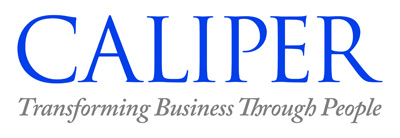Whether they’re running a small agency or working as part of a sales organization within a large corporation, hiring managers are wondering, “How do we get there?”
Long before a salesperson meets a customer, that customer researched the features and benefits of the products and services in question, read online reviews from other customers and assessed competitor offerings.
And that means a successful sales professional can no longer expect to show up, fill the room with personality and win based on a persuasive presentation of features and benefits.
To be successful, a salesperson must be a business consultant and partner who conveys a deep knowledge of client needs, competitor activity and consumer trends, as well as how their product or service fits into the client’s strategic plans and helps them hone their competitive advantage. Finally, the salesperson must demonstrate return on investment both in terms of hard dollars and positive, long-term outcomes.
At the same time, certain “traditional” aspects of the sales personality continue to bring value to the process. Sales leaders still need representatives who can network for connections, build rapport and develop relationships, establish credibility and trust, ask questions, tailor communication to suit the audience, and use personal impact to promote, persuasively and confidently, solutions that are anchored in industry and functional expertise.
That sounds complicated—and it is. So how do you get there?
Current Sales Models
Research from consumer, personality and business angles reaches the same conclusion: The transactional, “hunter” sales approach does not work as well as we once thought it did, especially not in the present market. It costs more to run a sales operation than it used to, partly thanks to the more sophisticated buying process described above, and some studies suggest aggressiveness in salespeople makes potential buyers feel threatened or otherwise retreat into a defensive posture.
This awareness has led to the development of a variety of nuanced sales models in the talent assessment field:
- New business development: similar to the traditional “hunter” role, this type of salesperson is expected to bring in new accounts through some combination of professional networking, cold calls and following up on leads. Negotiating acumen is important as well, as is persisting to close business.
- Account development: also known as a “farmer” approach, this model is based on relationship management and seeking new business through referrals and introductions. Top account developers collect and leverage information they obtain through formal and informal communication channels and power relationships.
- Account service: appropriate for roles in which up- and cross-selling existing accounts is the primary method of revenue generation. The person in this type of position should be adept at identifying needs, offering information and building sales though trust established by strong customer service.
- Consultative sales: requires a salesperson who can frame the sales role to customers as a business partnership and work collaboratively on solutions. This approach is a more recent trend that developed in response to the information-age sales environment discussed above. Top performers should be able to leverage the relationship to ask probing questions and systematically uncover root causes of business issues, then take ownership of solutions.
- Technical sales: the purview of the subject-matter expert who can generate sales by leveraging deep, industry-specific knowledge and technical expertise few others possess. The emphasis for this type of sales position is on analytical ability, learning agility and business acumen. Those who specialize in technical sales might partner with a more traditional “closer” to finalize an agreement with a client.
- Strategic sales: the model that perhaps works best in today’s business climate, strategic sales require what a “knowledge broker.” Such salespeople not only display a deep understanding of products, industries, markets and client business practices, but also bring new insights and challenge assumptions and conventional approaches. In short, they manifest competencies that are reflective of organization-wide, conceptual, big-picture thinking.
A New Paradigm
Role boundaries and expectations that once dominated thinking in the world of sales are no longer valid. Buyers can gather detailed information about products and the companies that sell them, read reviews, study alternatives and even use software and spreadsheets to eyeball complex data at a glance. They’ve bypassed the features and benefits person completely.
Nowadays, the sales professional must do a deep dive into a client organization’s needs to uncover issues the client itself does not recognize, provide insight into the buyer’s industry and stay on top of market trends. The complexity of the current business environment blurs roles and organizational boundaries, necessitating that sellers and buyers collaborate more extensively than ever to navigate intricacies and achieve complementary goals.
Today’s successful sales professional must also convey business value, not through charismatic persuasiveness but through compelling and tangible ROI evidence. Hiring managers should be looking for knowledge brokers who bring insight and wisdom to the customer—and differentiate themselves by becoming true strategic partners for their clients.
Caliper is an employee-assessment and talent management solutions company that helps businesses align talent with strategy; hire better people faster; and develop leaders, teams and mission-critical employees. We partner across all types of organizations, industries and sectors—from Fortune 500 companies to small businesses and government agencies to nonprofits. Our solutions are built from a unique combination of rigorous behavioral science, leading-edge technology and deep expertise. Whether you need to hire for an important position, promote from within, reduce turnover, improve team effectiveness, or develop current and future leaders, Caliper can help you make the best talent management decisions.

